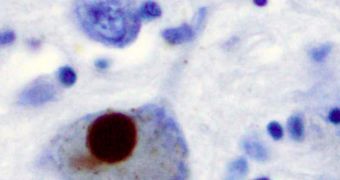Scientists in the United Kingdom, led by Lancaster University neuroscience professor David Allsop, PhD, say that they have created a new blood test against Parkinson's disease. The approach is able to detect the condition in its earliest stages, before physical symptoms have a chance to develop.
In conditions such as this, prevention and early detection are the best defenses. Finding the condition after it set in and developed puts doctors at a disadvantageous position when trying to mitigate its effects. The new tool is meant to eliminate that advantage.
It works by analyzing the concentration of a chemical called phosphorylated alpha-synuclein in human blood. The substance is known to exist in all Parkinson's patients in greater concentrations than normal, PsychCentral reports. The work is detailed in a recent issue of the FASEB Journal.
This blood test “allows for early detection which can help patients and their caregivers prepare for the possibility of the mental, emotional, and behavioral problems that the disease can cause,” says the Editor-in-Chief of FASEB Journal, Gerald Weissmann, MD.

 14 DAY TRIAL //
14 DAY TRIAL //